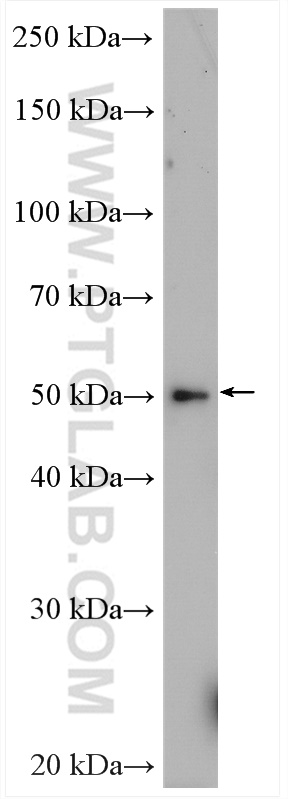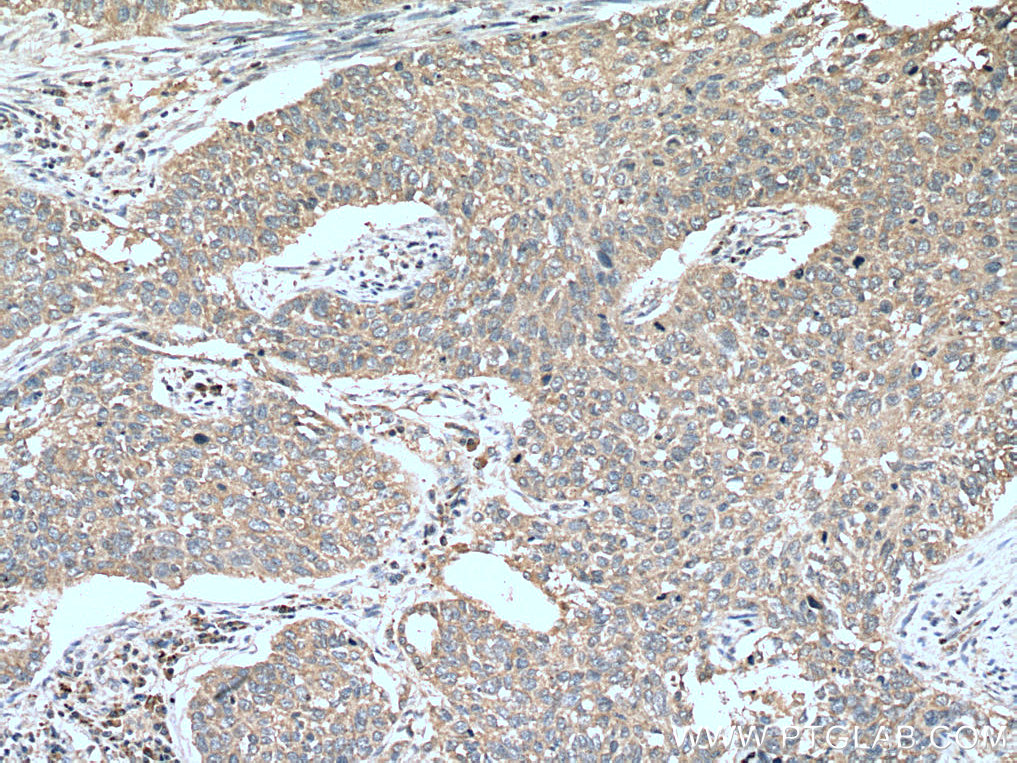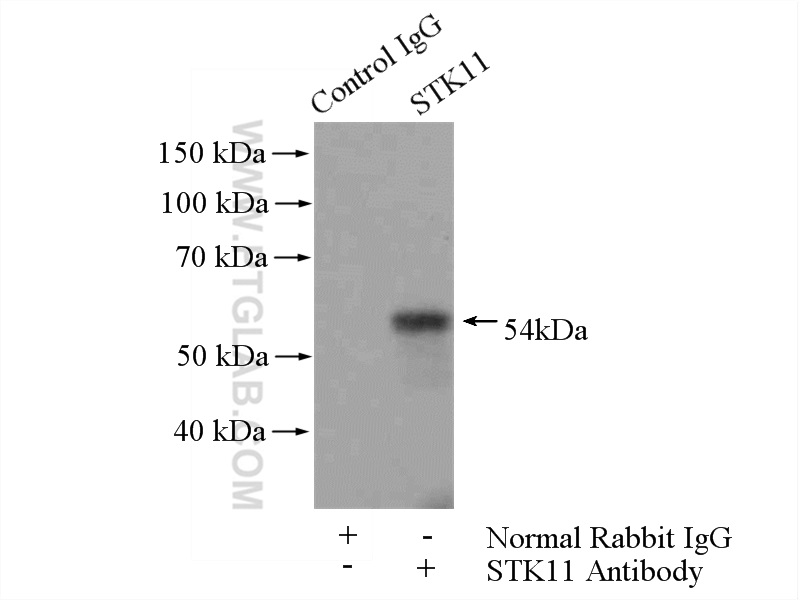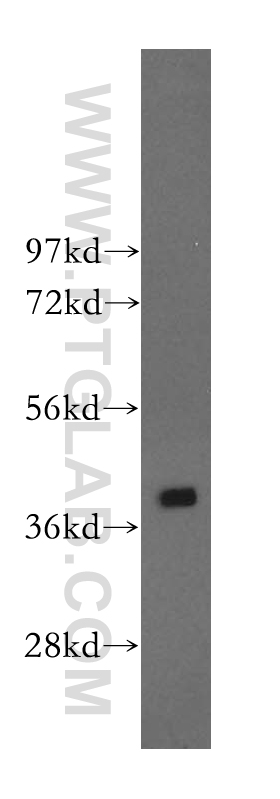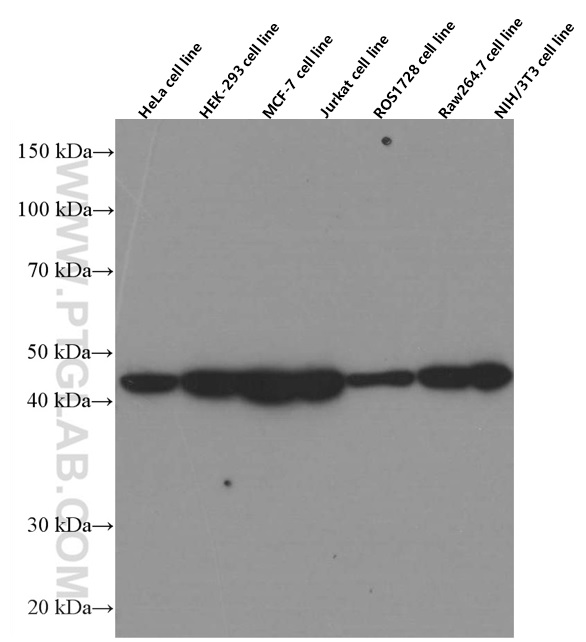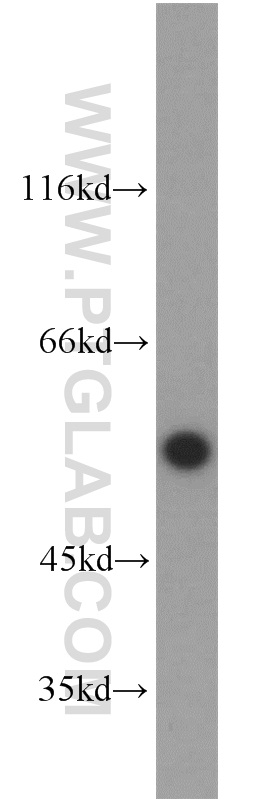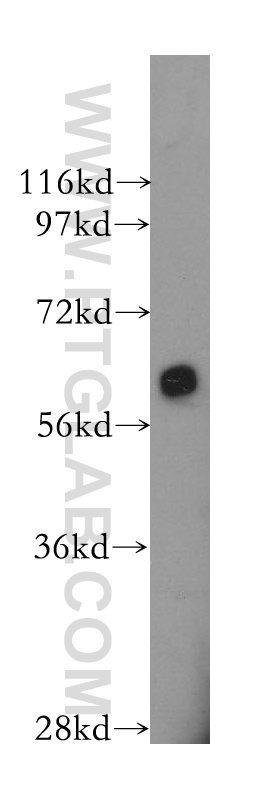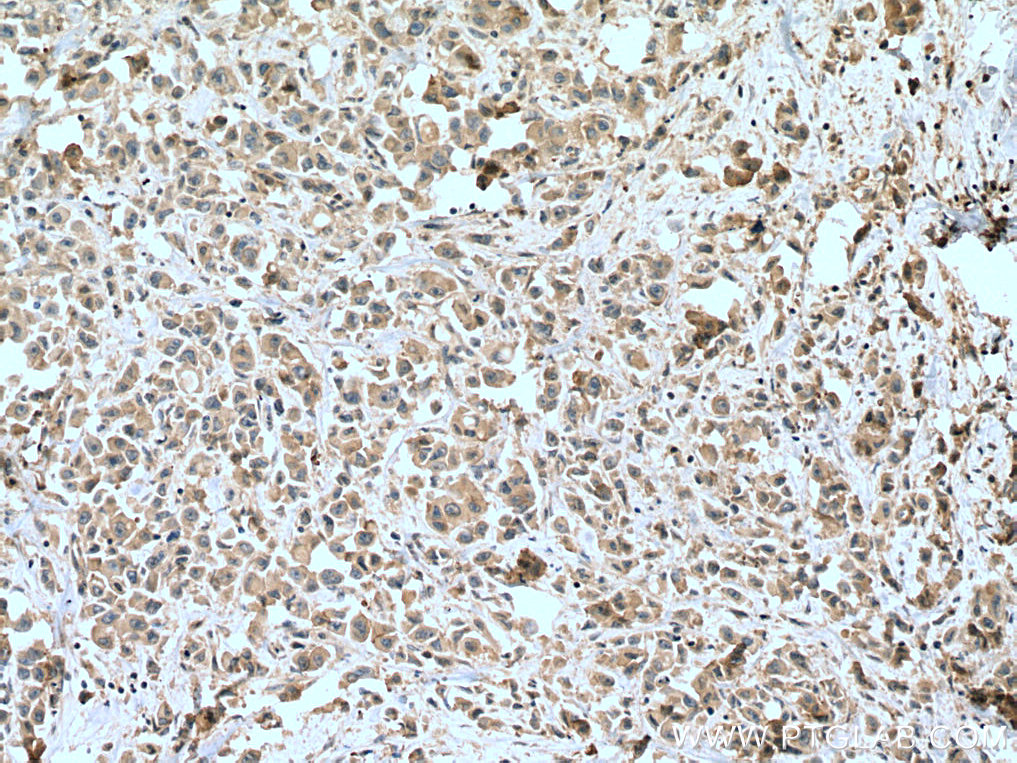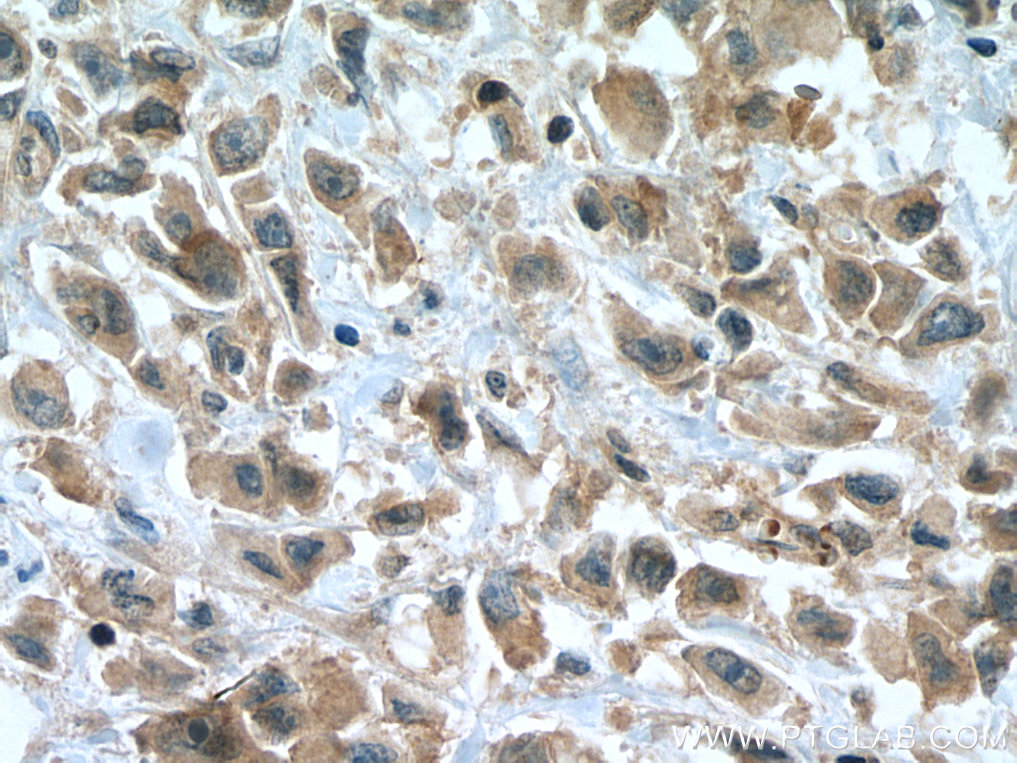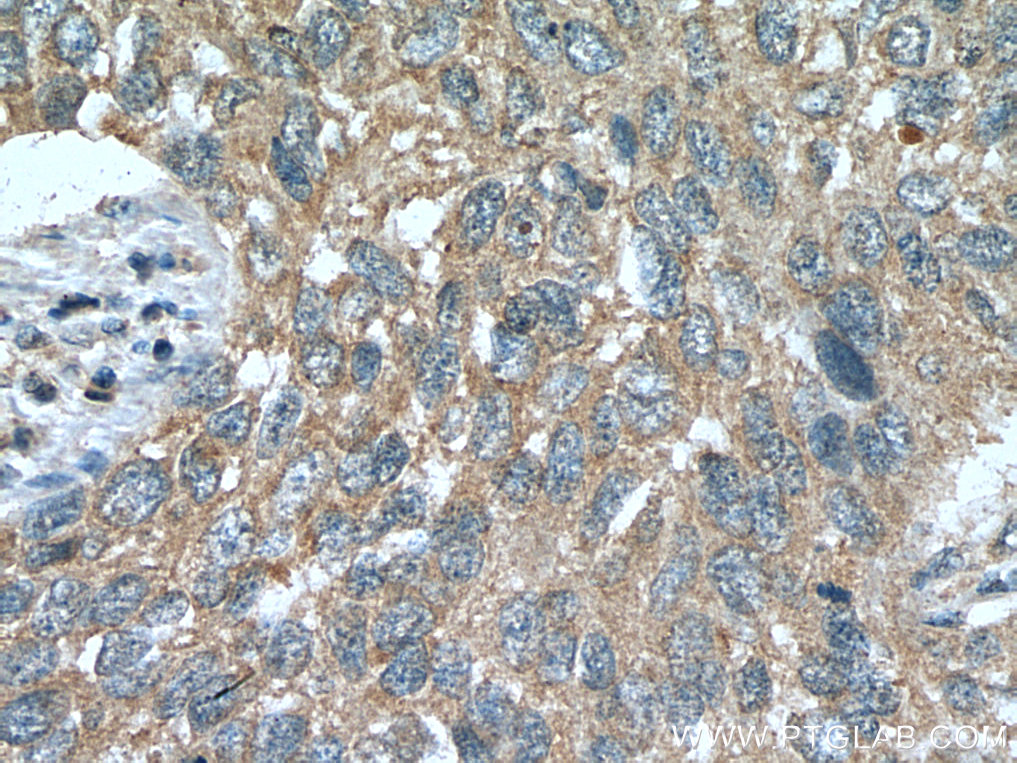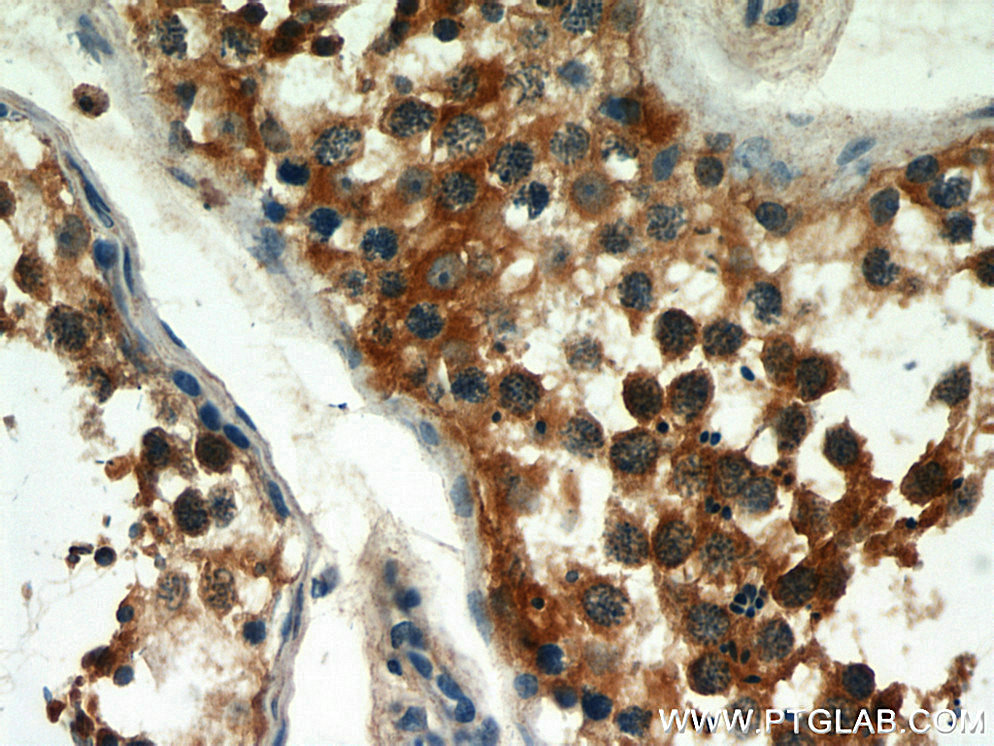- Featured Product
- KD/KO Validated
STK11/LKB1 Polyclonal antibody
STK11/LKB1 Polyclonal Antibody for IHC, IP, WB, ELISA
Host / Isotype
Rabbit / IgG
Reactivity
human, mouse and More (2)
Applications
IHC, IP, WB, ELISA and More (2)
Conjugate
Unconjugated
验证数据展示
经过测试的应用
| Positive WB detected in | HepG2 cells |
| Positive IP detected in | HEK-293 cells |
| Positive IHC detected in | human lung cancer tissue, human testis tissue, human breast cancer tissue Note: suggested antigen retrieval with TE buffer pH 9.0; (*) Alternatively, antigen retrieval may be performed with citrate buffer pH 6.0 |
推荐稀释比
| Application | Dilution |
|---|---|
| Western Blot (WB) | WB : 1:500-1:1000 |
| Immunoprecipitation (IP) | IP : 0.5-4.0 ug for 1.0-3.0 mg of total protein lysate |
| Immunohistochemistry (IHC) | IHC : 1:50-1:500 |
| It is recommended that this reagent should be titrated in each testing system to obtain optimal results. | |
| Sample-dependent, Check data in validation data gallery. | |
产品信息
10746-1-AP targets STK11/LKB1 in WB,IP,IHC,ELISA applications and shows reactivity with human, mouse samples.
| Tested Applications | IHC, IP, WB, ELISA |
| Cited Applications | WB,IP,IHC,IF,CoIP |
| Tested Reactivity | human, mouse |
| Cited Reactivity | human, mouse, rat, hamster |
| Immunogen | STK11/LKB1 fusion protein Ag1048 种属同源性预测 |
| Host / Isotype | Rabbit / IgG |
| Class | Polyclonal |
| Type | Antibody |
| Full Name | serine/threonine kinase 11 |
| Synonyms | LKB1, PJS, serine/threonine kinase 11, STK11, STK11/ LKB1 |
| Calculated Molecular Weight | 49 kDa |
| Observed Molecular Weight | 50-55 kDa |
| GenBank Accession Number | BC007981 |
| Gene Symbol | STK11 |
| Gene ID (NCBI) | 6794 |
| RRID | AB_2271311 |
| Conjugate | Unconjugated |
| Form | Liquid |
| Purification Method | Antigen affinity purification |
| UNIPROT ID | Q15831 |
| Storage Buffer | PBS with 0.02% sodium azide and 50% glycerol pH 7.3. |
| Storage Conditions | Store at -20°C. Stable for one year after shipment. Aliquoting is unnecessary for -20oC storage. |
背景介绍
实验方案
| Product Specific Protocols | |
|---|---|
| WB protocol for STK11/LKB1 antibody 10746-1-AP | Download protocol |
| IHC protocol for STK11/LKB1 antibody 10746-1-AP | Download protocol |
| IP protocol for STK11/LKB1 antibody 10746-1-AP | Download protocol |
| Standard Protocols | |
|---|---|
| Click here to view our Standard Protocols |
发表文章
| Species | Application | Title |
|---|---|---|
Cell Metab CircACC1 Regulates Assembly and Activation of AMPK Complex under Metabolic Stress.
| ||
Nat Commun Cordycepin prevents radiation ulcer by inhibiting cell senescence via NRF2 and AMPK in rodents. | ||
EBioMedicine Exogenous NADPH exerts a positive inotropic effect and enhances energy metabolism via SIRT3 in pathological cardiac hypertrophy and heart failure | ||
Kidney Int Rho-associated, coiled-coil-containing protein kinase 1 regulates development of diabetic kidney disease via modulation of fatty acid metabolism. | ||
Aging Cell Antagonizing peroxisome proliferator-activated receptor γ facilitates M1-to-M2 shift of microglia by enhancing autophagy via the LKB1-AMPK signaling pathway. |
